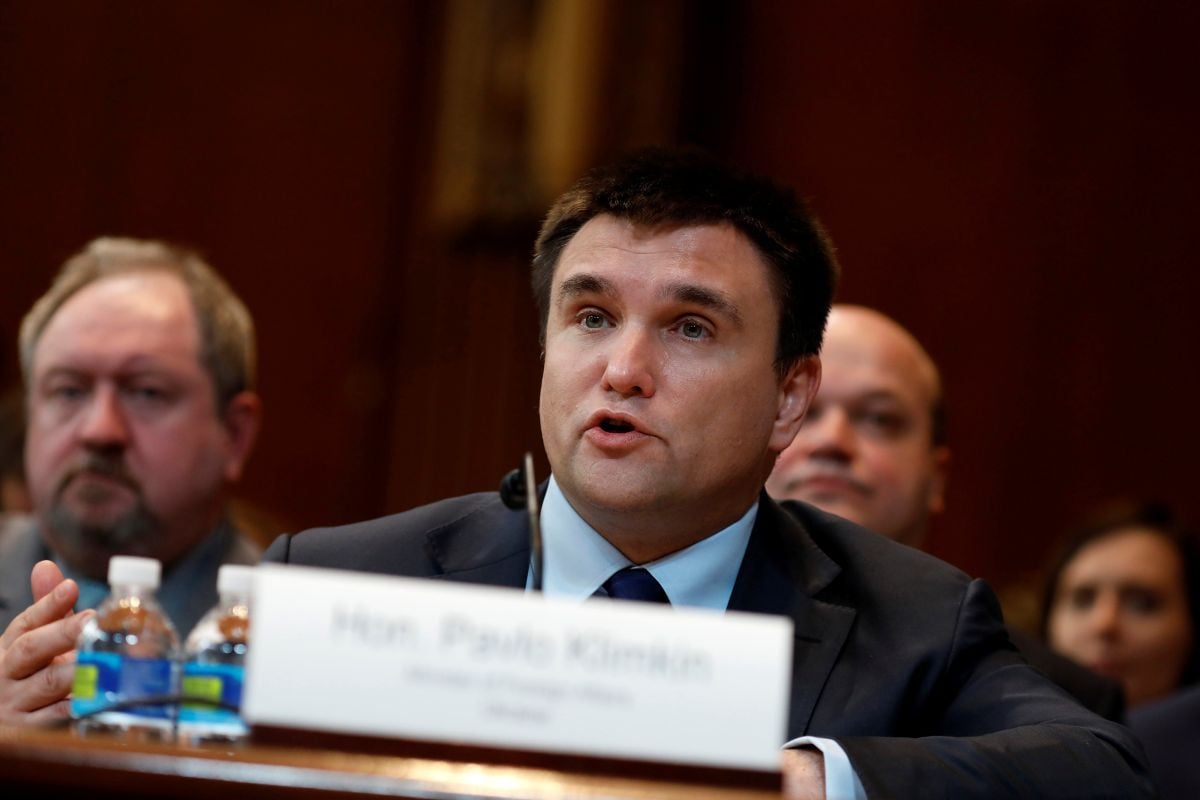
"When we speak about the importance of preserving and strengthening the nuclear non-proliferation regime, we should also keep in mind that the continuing occupation of the territory of Ukraine by a nuclear weapon state has resulted in de-facto expansion of the geographical area of nuclear weapons deployment," he said at a UN Security Council Ministerial Meeting in New York City on December 15 on the Non-Proliferation of WMD/North Korea.
Read alsoOn Budapest Memo anniversary Ukraine reminds of obligations of signatories, reiterates need for lethal aid"The illegal occupation of Crimea and the ongoing Russian aggression in Donbass region of Ukraine have left the low enriched uranium research reactor in Sevastopol, two nuclear repositories and more than 1,200 radionuclide sources without due control of the Ukrainian national regulator," he said.
"I wish to remind that the legal framework for IAEA safeguards application in Ukraine, including in the Autonomous Republic of Crimea and the city of Sevastopol, is based on Ukraine's Comprehensive Safeguards Agreement and Additional Protocol thereto," he added.
He recalled that earlier this month Ukraine marked the 23rd anniversary of the signing of the Budapest Memorandum on Security Assurances in connection with Ukraine's accession to the Treaty on the Non-Proliferation of Nuclear Weapons (NPT) dated July 1, 1968.
In return to voluntary renunciation by Ukraine of its nuclear arsenal, the three nuclear states committed "to respect the independence and sovereignty and the existing borders of Ukraine." The signatories of the Memorandum further obliged "to refrain from the threat or use of force against the territorial integrity or political independence of Ukraine, and that none of their weapons will ever be used against Ukraine."
The provision of security guarantees to Ukraine by nuclear states was a precondition for the country's accession to the NPT.
"This Memorandum is registered with the UN Secretariat in accordance with Article 102 of the Charter and certified by the Secretary-General as an international agreement. However, the obligations, set forth in this document, were insidiously violated by Russia, one of the signatories and the recipient of the nuclear weapons based in Ukraine until 1994," he said.
"As a result, my country was 'rewarded' with a violation of its borders in a blatant show of disregard for norms and principles of international law, the Charter of the United Nations, the Helsinki Final Act and a number of agreements, including the Budapest Memorandum itself. What kind of message had these actions sent to other non-nuclear states? To us, the message is pretty clear: Russian obligations mean nothing. They worth less than the cost of ink used for signing it," he said.
According to Klimkin, the Russian military aggression against Ukraine as well as systematic provocations by North Korea have provoked dangerous misbalance in the existing international security system, undermined the effectiveness and reliability of WMD non-proliferation regimes.
"In order to prevent the world from sliding into the state of lawlessness, we must stand united to ensure respect for international law. We must stand united to ensure responsibility for its violation – no matter whether it was violated by a recognized nuclear weapon state or those, desperately wishing to gain such a status," he added.

